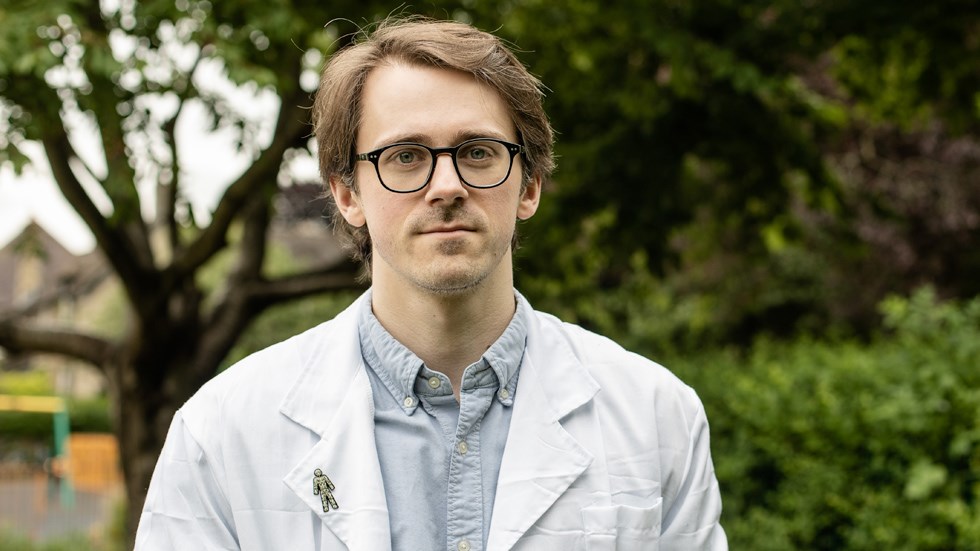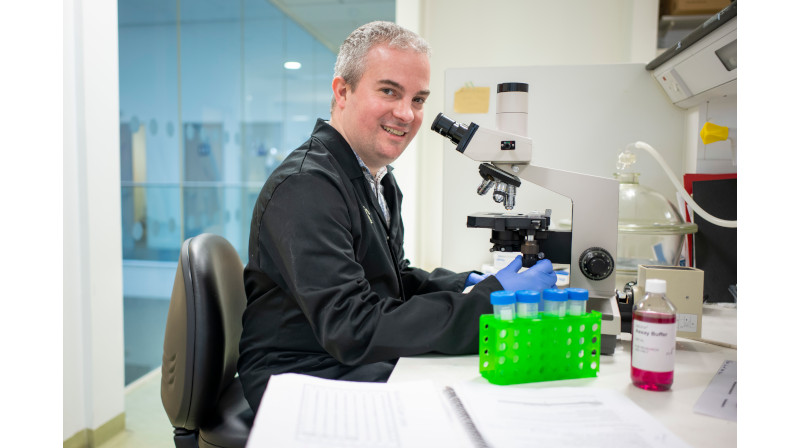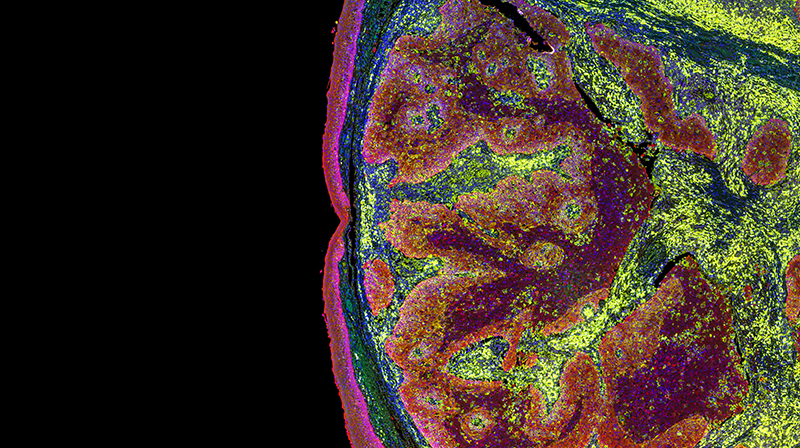Research
16 Oct 2023Blocking ‘SOS’ signals from prostate cancer cells key to stopping treatment resistance
Prostate Cancer UK-funded researchers have discovered how prostate cancer cells harness the immune system to resist treatments. The finding could lead to new, more effective ways to treat advanced prostate cancer.

For the first time, our research has revealed how one of prostate cancer’s key defence mechanisms works – and how it could be blocked.
The finding could lead to new, more effective ways to treat prostate cancer that the disease can’t easily become resistant to, and so save thousands of men’s lives.
The results have been published in the prestigious journal Nature, and will be announced later this month during a speech at the European Society for Medical Oncology (ESMO) Congress 2023 in Madrid, Spain.
Stopping prostate cancer becoming resistant
To make the discovery, researchers at the Institute of Cancer Research (ICR) looked at how prostate cancer cells interact with the immune system – a network of organs and cells that is meant to defend the body against illnesses like cancer.
However, in men with prostate cancer, the disease can send out ‘SOS signals’ to the immune system encouraging it to instead protect the cancer cells, making them resistant to treatments like chemotherapy.
The research team managed to find the exact receptor – essentially a signal receiver – on the surface of immune cells that picks up these SOS signals and causes them to come to help prostate cancer cells.
Knowing that, the team was able to test a drug that blocks this receptor from working, to see if it made hormone therapy more effective.

Professor Johann de Bono, who led the research team at the ICR, said: “We have discovered the specific receptor that is responsible for this – it’s called CXCR2 – and we’ve now produced the first clinical evidence that targeting it will block immune cells from moving towards cancer cells to protect them.”
The team gave a CXCR2 blocker alongside the hormone therapy enzalutamide to 21 men with advanced prostate cancer. All the men had previously been given other treatments and become resistant to them.
The research team found that blocking the CXCR2 receptor massively reduced the interaction between the men’s cancer cells and their immune cells.
They also saw that five of the men’s tumours responded to the treatment combination. This meant their tumours shrunk by over 30 per cent, they saw dramatic decreases in their PSA level, or the levels of tumour cells circulating in their blood dropped, in response to the combination.
We believe this could pave the way towards preventing treatment resistance, giving men with advanced prostate cancer a totally new way of controlling their disease.
A new way to treat advanced prostate cancer
Professor de Bono added: “We believe this could pave the way towards preventing treatment resistance, giving men with advanced prostate cancer who haven’t previously responded to therapies a totally new way of controlling their disease – extending and improving their lives.”
Dr Matthew Hobbs, Director of Research at Prostate Cancer UK, commented: “A man living with advanced prostate cancer needs treatments that will control his disease to give him years more life, feeling as well as possible. Sadly, for many men, their cancer resists treatments, ending too many lives far too soon.
“I’m extremely excited by these results, and proud that we’re funding such revolutionary research. Now we want to see pharmaceutical companies working with researchers to develop new drugs based on what we’ve learnt, and to test them in larger trials – turning research into reality for men.”




